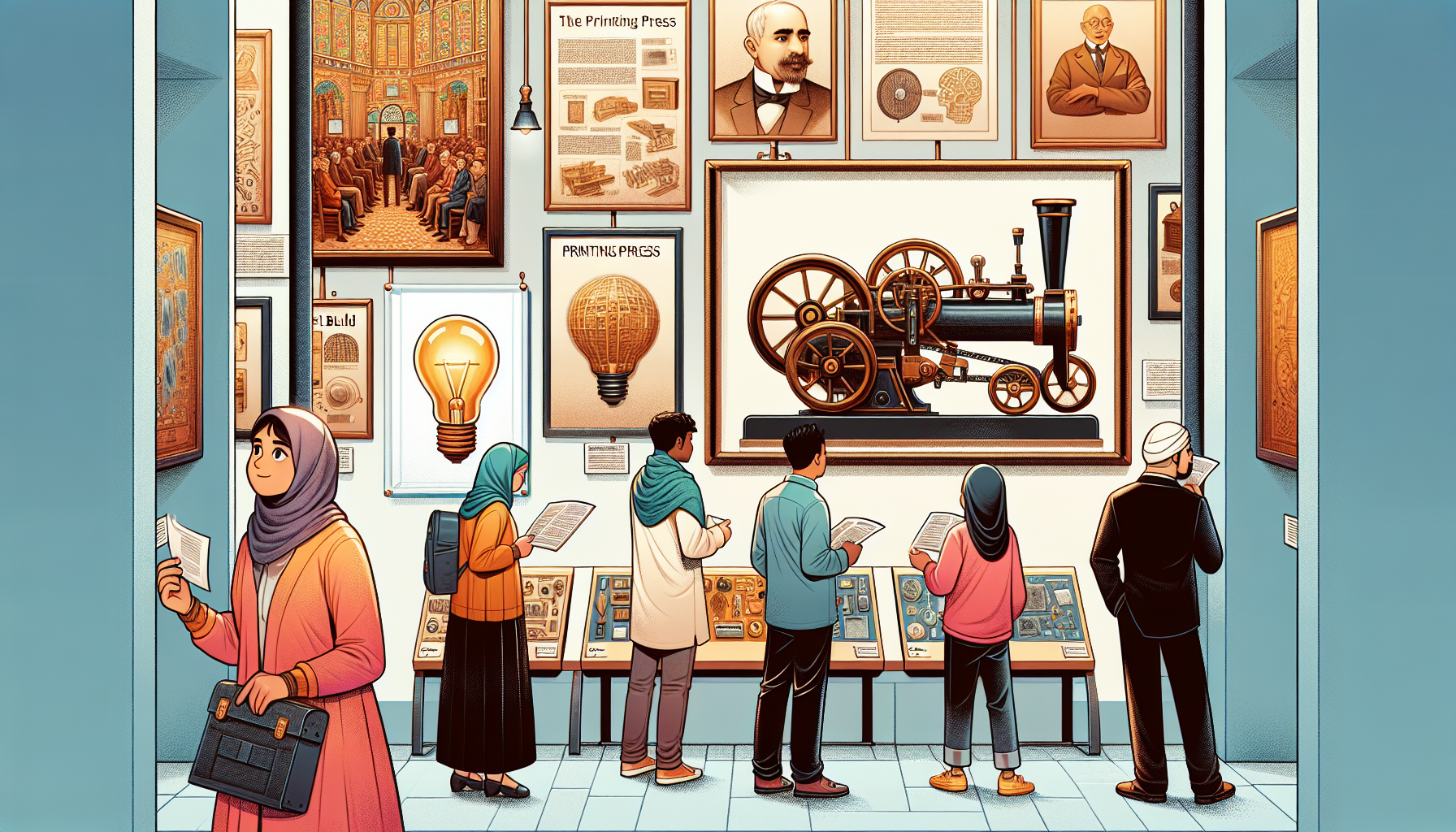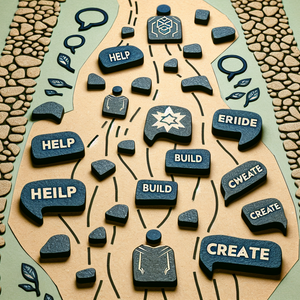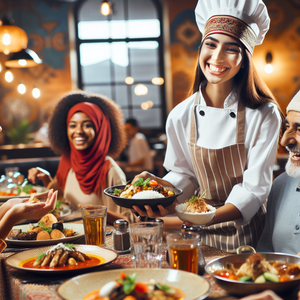The Human Touch in an Automated Kitchen

In recent years, automation has transformed the food service industry, fundamentally reshaping how restaurants and food outlets operate. Automated fryers, robotic bartenders, pizza-making robots, self-service kiosks, and even AI systems that analyze customer preferences are no longer science fiction but everyday realities in many establishments. The COVID-19 pandemic accelerated this trend, compelling businesses to adopt technology to minimize human contact, address workforce shortages, and maintain operational continuity during turbulent times. For first-line supervisors—those responsible for overseeing staff, ensuring quality, and managing the overall service experience—this proliferation of automation raises existential questions. Will robots eventually make human supervisors obsolete? On the surface, it might seem that machines capable of executing tasks with precision and consistency could eliminate the need for human oversight. However, this perspective overlooks the nuanced and irreplaceable qualities that supervisors bring to the table.
Emotional Intelligence: The Human Edge
One of the most significant strengths of human supervisors is emotional intelligence—the ability to understand, manage, and respond to emotions effectively. This skill is vital in the food service industry, where success depends on interpersonal dynamics, team morale, and customer satisfaction. Machines, despite their sophistication, are incapable of replicating human empathy or intuition. Consider a high-pressure scenario: a sudden influx of customers during a busy lunch rush. Automated systems might continue preparing food and managing orders as programmed, but they cannot comfort a stressed employee or defuse a tense interaction with an upset customer. A skilled supervisor can step in, ensure the team stays motivated, and provide reassurance to dissatisfied patrons, creating a smoother and more harmonious experience for everyone involved. Furthermore, emotional intelligence is crucial for fostering a positive work environment. The food service industry is notorious for its high turnover rates, often attributed to long hours, demanding conditions, and low morale. Supervisors who exhibit empathy, understanding, and strong leadership can significantly improve employee retention by building trust and loyalty among their teams. This human touch cannot be replaced by algorithms or robotic assistants.
Adaptability in the Face of the Unexpected
The food service industry is inherently unpredictable. Restaurants must contend with fluctuating demand, supply chain disruptions, evolving customer preferences, and even external factors like weather events or economic downturns. While machines excel at executing pre-programmed tasks, they falter when faced with unforeseen circumstances. For example, consider a situation where a key ingredient unexpectedly runs out during dinner service. An automated system might grind to a halt or continue functioning without accounting for the missing ingredient, leading to subpar results. In contrast, a human supervisor can quickly assess the problem, collaborate with kitchen staff to develop alternative menu options, and communicate these changes to customers in a way that maintains trust and satisfaction. This adaptability extends to customer interactions as well. While AI-powered systems can analyze data on customer preferences, they lack the nuance required to interpret and act upon that data in real time. A supervisor, however, can use their judgment to create personalized experiences that resonate with customers on a deeper level. Whether it's accommodating a special dietary request or resolving a complex complaint, the human ability to think critically and empathetically is invaluable.
The Importance of Human Oversight
While automation can enhance efficiency, it is not infallible. Machines can malfunction, algorithms can produce errors, and automated systems often fail to account for unique or nuanced situations. In such cases, human oversight becomes essential to ensuring that operations run smoothly and that mistakes are corrected before they negatively impact the customer experience. Take, for instance, AI-powered ordering kiosks. While these systems excel at handling standard orders, they often struggle with irregular requests, such as complex modifications or dietary restrictions. A human supervisor can bridge this gap, stepping in to address customer needs and ensuring the personalized service that diners expect. Moreover, supervisors bring a level of creativity and innovation that machines simply cannot replicate. They can experiment with new menu items, improve service workflows, and develop strategies to enhance the overall dining experience. This human ingenuity is critical for keeping businesses competitive in an industry where trends and customer expectations evolve rapidly.
Balancing Technology and Humanity
As technology continues to reshape the food service industry, the most successful businesses will be those that strike the right balance between automation and humanity. Rather than replacing first-line supervisors, automation should be viewed as a tool that enhances their capabilities. By delegating repetitive, time-consuming tasks to machines, supervisors can focus on higher-value responsibilities that require human judgment, emotional intelligence, and strategic thinking. For example, an automated inventory management system can save supervisors hours of manual tracking, allowing them to invest more time in team development, customer engagement, and creative problem-solving. Similarly, robotic kitchen equipment can handle routine food preparation, freeing supervisors to concentrate on ensuring quality and innovation in the dining experience. This symbiotic relationship between technology and human talent not only boosts efficiency but also preserves the personal touch that defines exceptional service. In an industry driven by human connection, this balance will be key to long-term success.
The rise of automation in food service represents a transformative shift, but it does not signal the end of the human touch. First-line supervisors, with their emotional intelligence, adaptability, and creativity, will remain indispensable in ensuring quality, connection, and innovation in the dining experience. While machines can handle repetitive tasks and data-driven decisions, they cannot replicate the nuanced judgment or empathy required to lead teams and engage customers effectively. As the food service industry evolves, businesses must embrace both automation and human talent, recognizing that these elements are not mutually exclusive but complementary. By leveraging technology to augment human capabilities, businesses can create environments that are efficient, innovative, and deeply connected to the people they serve. In the end, it is this human touch that will set successful businesses apart in an increasingly automated world.
Food Service Automation Specialist
McDonald's, Domino’s, Panera Bread
Responsibilities
Oversee the implementation and maintenance of automated systems such as robotic kitchen equipment, AI ordering systems, and self-service kiosks within food service operations.
Required Skills
Expertise in automation technologies, strong project management skills, and experience in integrating systems into existing workflows.
Notable Employers
Companies like McDonald's, Domino’s, and Panera Bread are adopting automation technologies and may hire for roles like this.
Unique Qualifications
Knowledge of programming or working with IoT devices is often required, along with the ability to train staff on new systems.
Customer Experience Manager in Automated Food Service
Chipotle, Sweetgreen, Shake Shack
Responsibilities
Bridge the gap between automated systems and customer satisfaction by ensuring a seamless interaction between customers and technology, such as troubleshooting kiosk issues or addressing errors in AI-powered recommendations.
Required Skills
Strong emotional intelligence, problem-solving abilities, and familiarity with customer-facing technologies.
Notable Employers
Fast-casual chains like Chipotle, Sweetgreen, and Shake Shack, which use automation for ordering or food prep.
Unique Qualifications
Experience in user experience (UX) design or human-computer interaction (HCI) is a major plus.
First-Line Supervisor in High-Tech Food Service Operations
Starbucks, Yum! Brands
Responsibilities
Manage human and technological teams in hybrid environments where automation supports, but does not replace, staff.
Focus on team morale, real-time problem-solving, and quality assurance in automated workflows.
Required Skills
Leadership and adaptability, knowledge of automated systems, and the ability to make quick decisions under pressure.
Notable Employers
Large restaurant chains like Starbucks and Yum! Brands, which are piloting automated solutions.
Unique Qualifications
Experience with workforce optimization tools or AI-driven scheduling systems is increasingly valuable.
AI and Data Analyst for Food Service Operations
Uber Eats, DoorDash, OpenTable
Responsibilities
Analyze data collected from AI systems, such as customer preferences, sales trends, and operational efficiency metrics, to inform strategic decisions and improve service.
Required Skills
Proficiency in data analytics tools (e.g., Python, SQL, Tableau) and knowledge of AI applications in food service.
Notable Employers
Companies like Uber Eats, DoorDash, and OpenTable, which rely heavily on data-driven decision-making.
Unique Qualifications
A background in data science or machine learning, as well as the ability to translate insights into actionable recommendations for non-technical stakeholders.
Innovation Manager for Food Service Technology
Zume Pizza, Miso Robotics, Blue Apron
Responsibilities
Lead the development and testing of new technologies, such as smart kitchen tools or AI-powered customer engagement platforms, to enhance efficiency and customer experience.
Required Skills
Strategic thinking, familiarity with emerging food service technologies, and the ability to collaborate with cross-functional teams (e.g., tech developers, marketing).
Notable Employers
Tech-forward companies like Zume Pizza, Miso Robotics, and Blue Apron.
Unique Qualifications
Experience in product development, along with an understanding of food safety regulations and culinary workflows.


